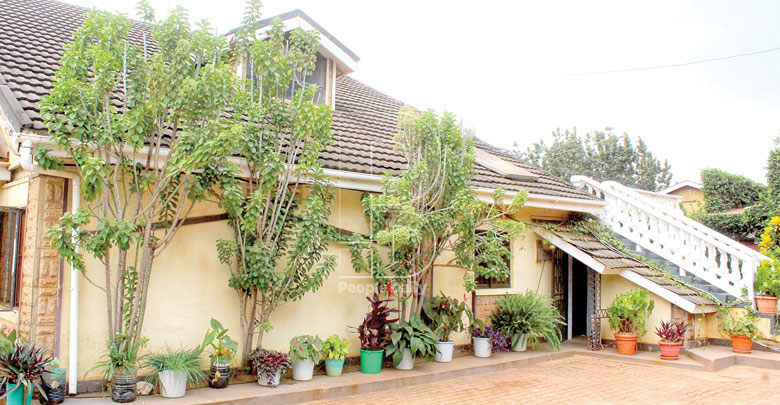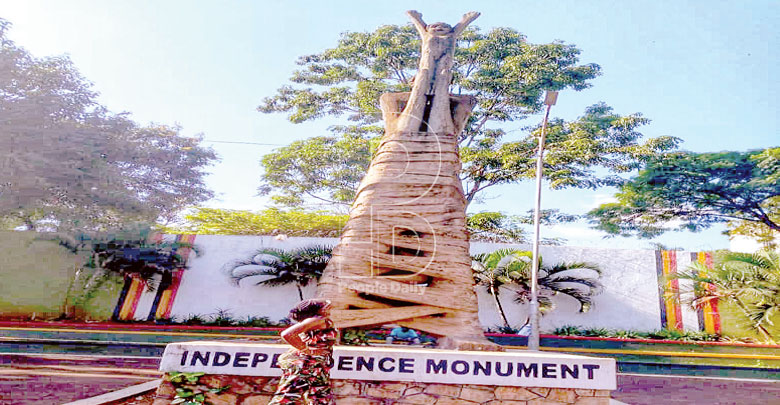Kampala: Beautiful forested hills, city of Seven Hills
By Harriet James, August 29, 2019
“Once upon a time, Kampala consisted of forested hills and wetlands, and was a breeding ground for wildlife, particularly impalas,” narrates Hawa Sendagire, our guide.
She points to Mengo, one of the hills where the Kabaka (kings of the Baganda) resided. Initially Mutesa I, the Kabaka or king of Buganda, loved hunting the impalas and had chosen this specific area for his expeditions.
My host’s son, Simon Singiza and I were at the minaret of Gaddafi Mosque, Africa’s largest mosque situated on Kampala Hill in the old Kampala area. It took 314 tiring stairs to get to the top, where the reward was breathtaking views of the city. Despite my fear of heights, I persisted, just for the experience.
From this point, all the ridges, which make Kampala the City of Seven hills can be seen. They remain landmarks of cultural, religious and historical meaning.
The colonisers called it, the ‘hill of the impala’. It is here that British administrator, Captain Fredrick Lord Lugard, established his camp in 1890. “The Baganda translated this as Kasozi (hill) of impalas, which was pronounced as Ka-mpala. And that’s how the city got its name,” says Hawa.
Out of the seven hills, four are split amongst the four main religious groups in the nation. Rubaga hill is for the Catholics, Namirembe for the Anglicans, while Kibuli and old Kampala, where we are standing, is reserved for the Muslims.
Makerere university
There is also Kololo/Nakasero, which is reserved for public administration and where most of the public civil servants reside. It also hosts State House, where the president lives. Makerere is reserved for one of the oldest and most prestigious universities in East Africa. Last but not least, Mulago hill is associated with health.

Photo/PD/HARRIET JAMES
The minaret of Gaddafi Mosque was one of the historic places we toured with my hosts in Kampala recently. Other attraction sites you can visit are the national museum, Kabaka palace, Amin’s torture chambers, parliament, Namirembe Cathedral (where you learn about the 12 martyrs) and Rubaga Cathedral.
My recent trip to the land of matoke (bananas) was punctuated by surprises. I never anticipated that the country next door would have so many memorable experiences. I thought that Uganda being a next door African country would mean we shared similar traditions, but I learnt that we were different in culture, history and mannerisms.
My hosts, Marcelino Bwesigye and his wife Agnes, owners of the magnificent Voyageur Hotel and Suite group of Kampala and Kasese regions, made me see Uganda through their eyes. For starters, travelling to Uganda is affordable. It takes Sh2,500 in a bus (12 hours) one way and around Sh10,000 by air (about 45 minutes) to get there.
There are also budget-friendly guest houses, such as Voyageur Hotel where I stayed. It’s suitable for business and family gateways and each room is equipped with TV, an en suite bathroom.
I loved the fact that there was Wi-Fi, which made it easier for me to work and communicate with people back at home. However, the social media tax in Uganda is crazy. President Yoweri Museveni imposed the levy last year on mobile money transactions, WhatsApp, Facebook and Twitter to boost government revenues and to end “gossip”.

Photo/PD/HARRIET JAMES
So, I learnt to hack the system by using programmes such as Virtual Private Network (VPN) where one can use free Internet.
The hotel is family run, so should you opt to stay here, you will mingle with the Bwesgyes as they go about their daily life. Having a family host you in a foreign land is one of the safest and most economic ways to navigate for your business or leisure travels. They assist you access tourist sites and also will protect you from con men.
I got to sample some of their dishes such as the renowned matoke with peanut sauce, rolex (which is our chapatti with eggs inside), katogo and their ugali, called posho in Uganda.
One day, I was a guest at someone’s home and a girl knelt as she served me. I was shocked. Though I felt honoured, never in my life have I ever been served by a person in that position. I guess that’s what makes our Kenyan men travel all the way to marry women from Uganda.
The Baganda
I also learnt how to say thank you (webale), ok (kale), come (jangu), which enabled me blend in with Ugandans. Still, I run into difficulties whenever I encountered locals who couldn’t understand English or Kiswahili.
Few speak Kiswahili here. However, the number of Kiswahili speakers is higher towards western Ugandan where people often mingle with Congolese, or in Kampala, because of the influence from Kenyans and Tanzanians.Luganda is the main language spoken in Kampala.
Their national museum is the oldest in East Africa. They had a screening of Amin’s photos and video depicting his brutal era in Uganda. Many lives were lost, but the dictator was overthrown and Uganda is peaceful today.
But just like Kenya, their traffic is a nightmare and their matatus, which they call taxis, behave the same way as ours. Here preachers, just like hawkers, thrive in traffic jams.